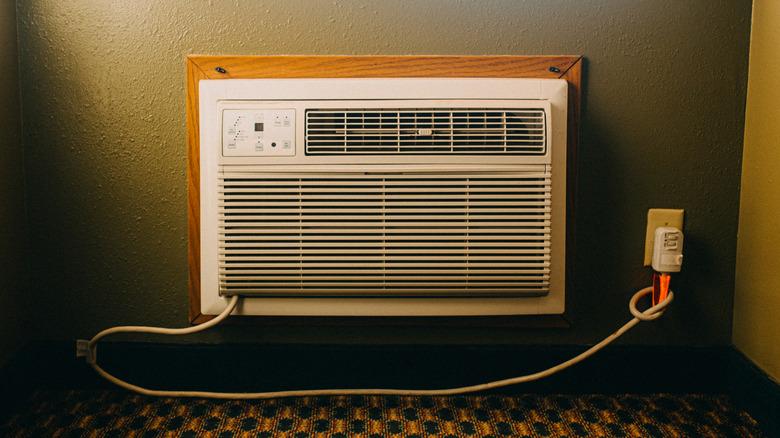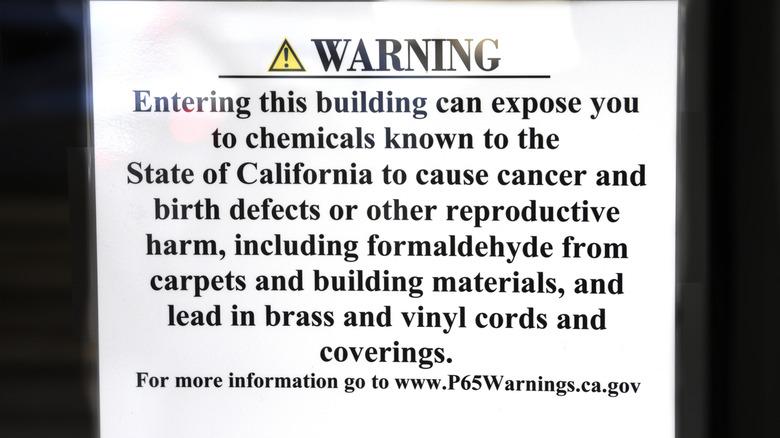Can Your Air Conditioner Give You Cancer?
Whether you have central air conditioning, a ductless wall unit, a window air conditioner, or portable unit, you may have been startled by a warning label threatening that your AC unit could cause cancer, birth defects, or reproductive harm. This label is due to a California law known as Proposition 65, and warns consumers if an item contains any harmful chemicals.
So can your air conditioner give you cancer? Probably not. Your AC unit most likely has the Prop 65 warning because it contains lead. According to the CDC, lead is a probable carcinogen and lead exposure has been known to cause birth defects and reproductive harm. However, most household appliances and electronics contain lead in their circuit boards. Modern air conditioning units have layers of metal and plastic around the lead, and would likely only cause harm if you rip open the unit and somehow consume it. The Mayo Clinic has a long list of ways you could get lead poisoning, and running your air conditioner is nowhere on the list.
In 2010, the U.S. banned the manufacture of AC units using R-22 (Freon) as a refrigerant, and switched over to R410A (Puron) because it was damaging the ozone layer. Damage to the ozone layer can cause skin cancer, so in a roundabout way your air conditioner could give someone cancer. A more direct health risk from Freon is refrigerant poisoning, which only occurs if your unit has a leak, and symptoms can vary from mild to severe depending on the level of exposure. The most common cases of this are people who intentionally sniff Freon, leading to sudden death, brain damage, or lung damage.
What is Proposition 65?
California updates a list of chemicals that can cause cancer and birth defects every year, and at present, there are 900 chemicals on the list. Proposition 65 (also known as the Safe Drinking Water and Toxic Enforcement Act of 1986), requires every California business to place a warning inside their buildings or products that contain a certain amount of these chemicals. The law is important for two reasons: it enables consumers to make informed decisions, and it helps reduce the amount of harmful chemicals found in everyday products.
Prop 65 has made significant strides, such as removing lead in items like children's jewelry and toothpaste, requiring Liquid Paper to remove a dangerous carcinogen from its products, and reducing arsenic in bottled water (anyone else alarmed by the word "reducing" in that sentence?). The warning has been a familiar sight to Californians for almost four decades, and is now seen all over the world thanks to e-commerce. However, the extreme language used on the label can understandably cause panic and confusion in those seeing it for the first time.
How should you react to products with Prop 65 warnings?
When items with low cancer risk and extremely carcinogenic products have the same warning label, it can cause confusion for consumers. While there are very strict consequences (up to $2,500 a day per violation) for not using a label when needed, there are no consequences for companies who use the label unnecessarily. It stands to reason that most manufacturers would rather be safe than sorry and therefore use the label for products that are unlikely to cause harm.
Fortunately, the California government has created Safe Harbor Levels for 300 of the 900+ chemicals found in Prop 65, and that list is continuing to grow. Safe Harbor Levels include No Significant Risk Levels (NSRL) for cancer and Maximum Allowable Dose Levels (MADL) for pregnant women. When companies are given a clear limit to aim for, we should start to see fewer Prop 65 warnings and more "No Significant Risk" labels.
In the meantime, how should you react to Prop 65 warnings? In instances such as entering a building or filling up your car with gas, they are unavoidable. And for household appliances such as your air conditioner, there's no significant risk (as long as you maintain good air conditioner maintenance). However, you can make better purchasing choices when it comes to items you touch everyday, especially if you have a choice between those with the warning and those without. Items with Prop 65 labels that should give you pause are food, baby items (or anything a baby might touch or put in its mouth), and daily-use cosmetics.


